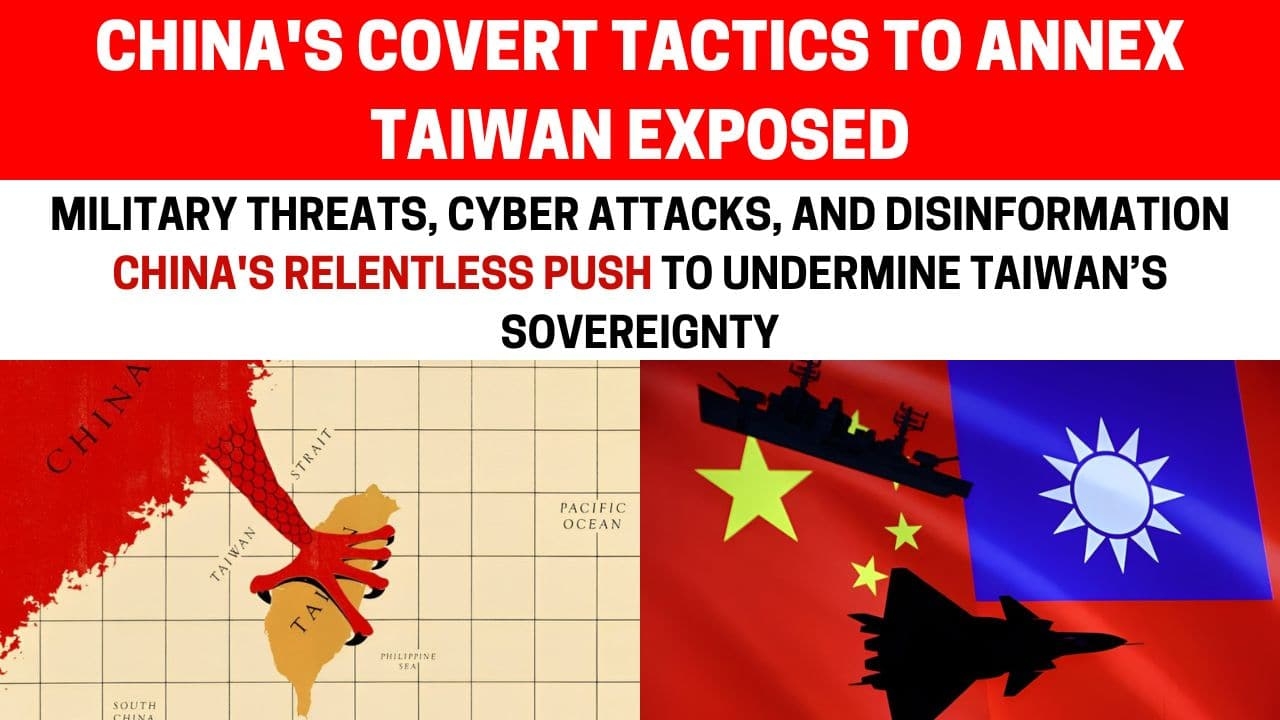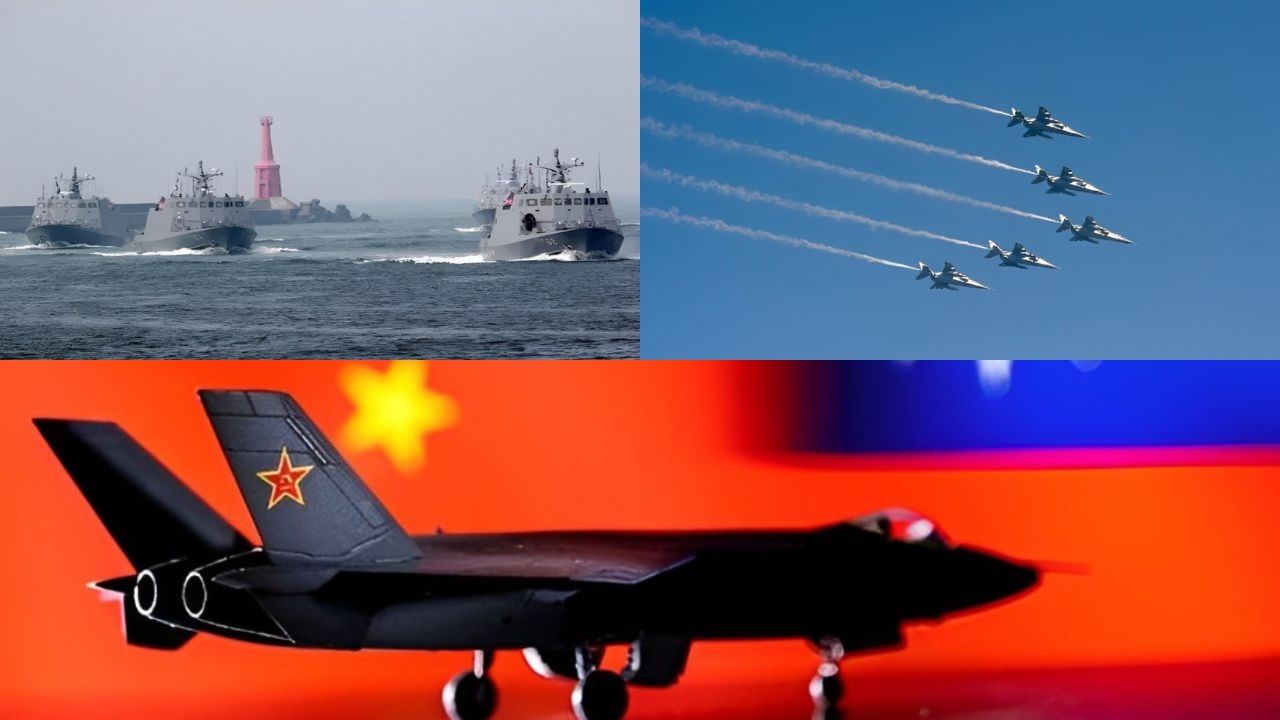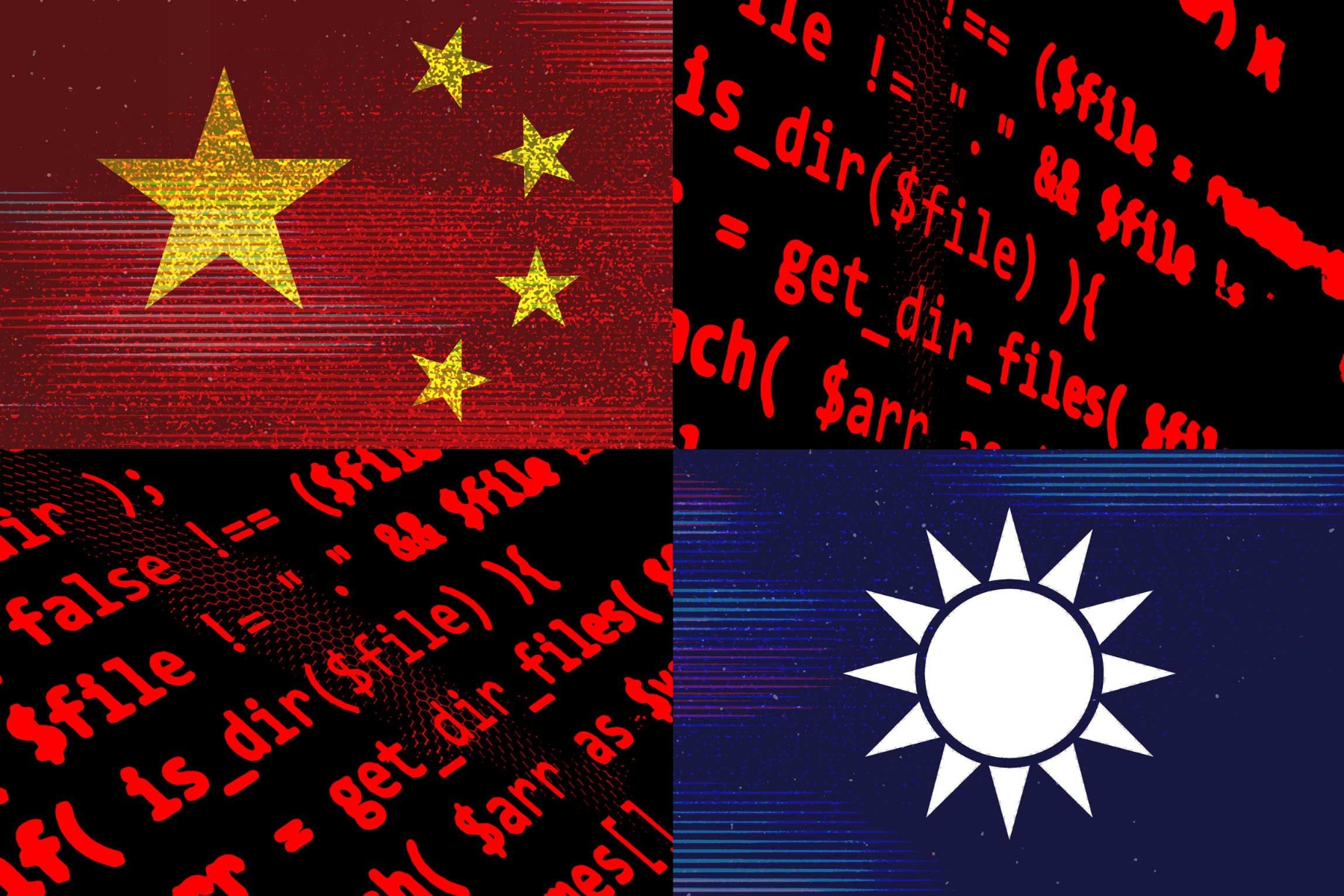China's Covert Tactics to Annex Taiwan Exposed
29 Sep 2024 13:42:44

China's ambitions to bring Taiwan under its control have escalated in recent years, employing a range of tactics that threaten the island nation's sovereignty and regional stability.
From aggressive military manoeuvres to sophisticated cyber warfare, Communist China is intensifying its efforts to annex Taiwan, drawing international concern and condemnation.
The People's Liberation Army (PLA) has ramped up its military activities around Taiwan, conducting frequent air and naval exercises that encroach upon Taiwan's air defence identification zone (ADIZ).
These incursions are designed to intimidate Taipei and test its defence capabilities. In 2022, Taiwan reported over 1,000 incursions by Chinese military aircraft into its ADIZ, a significant increase from previous years.

The PLA has also deployed aircraft carriers and warships in the Taiwan Strait, simulating blockade scenarios and amphibious assault exercises. Such aggressive posturing raises the risk of miscalculation and potential conflict.
China leverages its economic might to pressure countries and international organisations to sever ties with Taiwan. By offering lucrative trade deals and investments under initiatives like the Belt and Road, Beijing persuades nations to adhere to its "One China" policy, further isolating Taiwan diplomatically.
Since 2016, seven countries have switched diplomatic recognition from Taipei to Beijing, reducing Taiwan's official allies to just 14. Moreover, multinational corporations face threats of market exclusion if they fail to list Taiwan as part of China, forcing compliance through economic coercion.
Cyber attacks originating from China have targeted Taiwan's government agencies, infrastructure, and private sector, aiming to disrupt operations and steal sensitive information.
In 2021, Taiwanese authorities reported a record number of cyber intrusions, with many attributed to state-sponsored Chinese hackers. Critical sectors like energy, finance, and healthcare have been compromised, posing significant national security risks.

In addition to cyber espionage, China employs disinformation campaigns on social media platforms to influence public opinion in Taiwan.
Fake news, manipulated content, and propaganda are disseminated to sow discord, create social divisions, and undermine trust in democratic institutions. These efforts intensify during election periods, aiming to sway voters towards candidates favourable to Beijing's interests.
Beijing's United Front Work Department orchestrates efforts to infiltrate Taiwanese society by co-opting politicians, media outlets, academia, and social organisations.
Through financial incentives, business opportunities, and cultural exchanges, China attempts to build a network of influence within Taiwan.
Instances of pro-China media outlets disseminating propaganda and politicians accused of receiving funds from Beijing have raised alarms about the erosion of Taiwan's democratic processes and national security.
China seeks to increase Taiwan's economic dependency by attracting Taiwanese businesses and professionals to the mainland with preferential policies and incentives.
By luring talent and capital, Beijing aims to weaken Taiwan's economy and create leverage over its industries. This talent drain poses a long-term threat to Taiwan's competitiveness and innovation capacity.
The international community has expressed growing concern over China's aggressive posture towards Taiwan. The United States has reaffirmed its commitment under the Taiwan Relations Act to provide Taiwan with defensive weapons and maintain the capacity to resist forceful actions against it.
Japan, Australia, and European nations have also voiced support for Taiwan's participation in international forums and emphasised the importance of peace and stability in the Taiwan Strait.
China's actions not only jeopardise peace across the Taiwan Strait but also challenge the broader rules-based international order.
The South China Sea disputes, Hong Kong's autonomy erosion, and border tensions with India reflect a pattern of assertiveness that raises regional security concerns.
Despite mounting pressure, Taiwan remains steadfast in defending its sovereignty and democratic way of life. President Lai Ching-te has called for international support to counter Beijing's coercion, emphasising the importance of solidarity among democracies.
Taiwan continues to strengthen its defence capabilities, increasing its military budget and investing in asymmetric warfare strategies to deter aggression.
Taiwan has also bolstered its cybersecurity defences and launched initiatives to combat disinformation, promoting media literacy and fact-checking mechanisms among its citizens.
The government encourages resilience and unity in the face of external threats, highlighting the value of Taiwan's democracy, freedom, and open society.
China's multifaceted strategy to annex Taiwan employs coercion, intimidation, and subversion, undermining regional stability and international norms.
As Beijing intensifies its efforts, the need for a coordinated global response becomes ever more critical to uphold peace and defend democratic values in the face of authoritarian aggression.
The international community must stand with Taiwan to ensure that force and coercion do not dictate the future of sovereign nations.